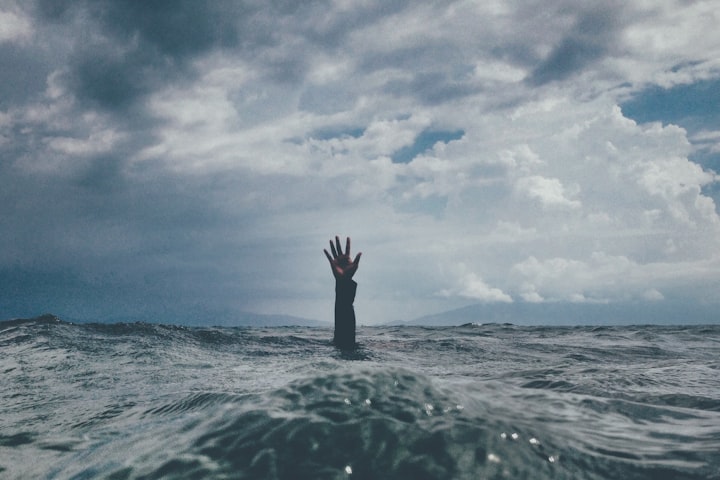
This reflection contains spoilers
Last week, I trotted off lightheartedly to the cinema to see Darren Aronofsky’s The Whale, knowing little about it beyond that Brendan Fraser’s performance as Charlie had received critical acclaim. I left the cinema shaking, with tears streaming down my face, and spent the rest of the evening replaying as much of it as I could remember, as well as poring over professional reviews and comment threads on various websites. A story of grief, love, self-loathing and addiction and a sliver of hope, The Whale is an intensely intimate and tragic glimpse into the complicated nuances of being human, the ripple effects of our choices, and the impacts we have on each other’s lives. I have read criticisms that this film reduces Charlie to little more than his size, and that the film is too dramatic. I disagree. Charlie’s size is of critical importance as it is a direct result of his crippling addiction, and the reasons for his addiction are what have propelled him to the place where we find him now: dying, and desperate to reconnect with his angry, estranged daughter. A story of this nature is inherently difficult to watch and necessarily contains dramatic elements, and Aronofsky skilfully plunges us into these realities and forces us to uncomfortably find elements of ourselves in the characters onscreen.
The story centres on Charlie (Brendan Fraser), a reclusive man in his apartment in Idaho who is living out the final few days of his life. He is an English professor who earns a living by teaching online college writing courses—but he keeps his webcam unplugged. Charlie is apartment-bound, perhaps initially by choice and later by size; he weighs around six hundred pounds; he can walk only by using a walker; and he requires various mechanisms to support him in tasks many of us may take for granted, such as getting in and out of bed. Charlie is also soft-spoken and soft-hearted, radiating optimism and love to the people around him. Charlie has one friend, Liz (played stunningly by Hong Chau), who is a nurse. In the opening act, Charlie suffers what appears to be a heart attack, and strains to read aloud what sounds like an essay on Moby-Dick. When Thomas (Ty Simpkins) happens to show up at that moment, Charlie’s only wish is for Thomas to begin reading the essay aloud, rebuking the suggestion of an ambulance. Liz appears and diagnoses Charlie with congestive heart failure and urges him to go to the hospital, which Charlie refuses to do. She plainly states that Charlie will be dead by the weekend without medical intervention. What follows, then, is Charlie’s commitment over the next handful of days to slowly killing himself.
As the story onscreen unfolded, I realized I recognized part of the theme from another intensely impactful film: Leaving Las Vegas, which follows Ben Sanderson (Nicolas Cage) as he drinks himself to death. Vegas and The Whale contain several similarities: Both Ben and Charlie are severely depressed. Both Ben and Charlie have given up on themselves. Both Ben and Charlie are severe addicts—one to alcohol, the other to food. Both Ben and Charlie are cared for, and enabled by, women who want them to live, but who understand that no one—no one—can be helped unless they want to be helped. In these ways, The Whale is the story of a man’s slow death by crippling addiction, and the emotional and physical consequences of that addiction on both the addict and the people in his life. Vegas is based on John O’Brien’s autobiographical novel of the same name, and similarly, Hunter wrote autobiographical elements into The Whale. This lends further legitimacy to both stories of depression and addiction and the fallout from each protagonist’s words and actions, making criticisms of The Whale more difficult to digest, as it has roots in lived experiences. Charlie’s binge eating episode is visceral and devastating in the same way an alcoholic going on a bender is damaging and devastating. Swap the food for alcohol, and we are watching Ben drown his pain, destroy his body and traumatize Sera (Elisabeth Shue).
Unlike Ben, however, Charlie has one burning desire outside of slow suicide: to make amends with his estranged daughter, Ellie (Sadie Sink), who is 17 and on the brink of failing out of high school. Ellie is rife with anger and abandonment trauma: Charlie left her and her mother, Mary (Samantha Morton), when Ellie was 8 for a male student, Alan, and built a new life with him. Mary is an alcoholic who forbade Charlie from re-entering Ellie’s life, despite that he eventually wanted to. Alan was Charlie’s true love; after Alan’s suicide, Charlie fell into a severe depression and retreated from the world. With days left to live, all of Charlie’s guilt and regret around Ellie, Mary, and Alan comes to a head, and he becomes fixated on connecting with Ellie, contacting her without Mary’s knowledge. As can be the case with estranged relationships, guilt and addiction, there is manipulation between father and daughter: Charlie bribes her to spend time with him with the promise of giving her all his savings, Ellie agrees, and then adds a second condition: he must agree to rewrite some of the essays she has failed. Is it wrong to employ manipulation when both parties are so deep in their pain and complex emotions that without it, the connection they begin to find would not have transpired?
The Whale is not meant to be joyful and uplifting. The story is one of millions across the planet involving fractured relationships, regret, guilt, addiction, growth and pain. It is an examination of a small group of people who have been deeply and, in some cases, irreversibly impacted by each other’s words and actions. At the centre of it all is Charlie, the addict, the self-pitying man who craves forgiveness and connection perhaps too late; Charlie, the flawed human. The root of Charlie’s addictive behaviour is critically important, as his responses to his life’s traumas—the impact of abandoning his child, the suicide of the love of his life—are what have shaped his character and brought him to where he is when we meet him. While we are aware of Charlie’s size, of his sweating, of his pain and difficulty in executing usually simple tasks, we see just as acutely a person who is kind-hearted and soft-spoken, with a warm, beaming smile. Fraser’s soulful eyes tell many stories and cement Charlie as a likeable character with whom it is easy to empathize. On the flipside, it is a testament to Fraser’s masterful acting abilities that when we learn of Charlie’s abandonment of his wife and daughter and hear his quiet apologies, we are disappointed in Charlie and we feel anger on Ellie’s behalf—while also understanding the motivation being that Alan was Charlie’s true love.
Just as life is full of complexities, so does The Whale evoke complex, conflicting emotions. As the week progresses and his health deteriorates, we feel frustrated with Charlie for giving up on his life right when Ellie shows flashes of wanting to cautiously, slowly, carefully build a relationship with him. Charlie is constantly optimistic with everyone around him, leaving no room for grace or forgiveness for himself, which was something I wished for him: to forgive himself. In his first in-person interaction with Mary in years (which is also his last before his death), Mary chastises Charlie for his optimism, and informs Charlie that Ellie is “evil”. Charlie is appalled by this characterization and insists that there is goodness, intelligence and love inside of Ellie, and he makes it a kind of dying mission to pull some of it out of his daughter. As Mary heads towards the door to leave, Charlie turns around in his wheelchair, distraught and sorrowful, his eyes frantic with pain and remorse as he cries out in reference to Ellie:
“I need to know that I have done one thing right with my life!”
It is the gut-wrenching cry of a man facing death, his choices in life, and whose soul is desperate for a glimmer of hope in the child he is leaving behind.
When you realize that Charlie is behaving as many addicts do, the method by which he has chosen slow suicide is somewhat irrelevant. Charlie, like Ben, is self-loathing, self-pitying, depressed, and generally unwilling or unable to face the difficult consequences of his actions and find a way to move forward. Instead, he hides from the world, destroys his health and (unlike Ben) scrambles at the eleventh hour for even a hint of forgiveness and goodness from Ellie. Admitting his faults and apologizing to Ellie is commendable; waiting until this moment in time, which essentially forces his daughter to watch him die, is selfish. In this way, my brain and heart flooded confusedly with multiple emotions for both Charlie and Ellie, rendering my face soaked in tears when the film ended and, within milliseconds, the lights in the cinema were switched on, and I scrambled to wipe them away, only to realize that everyone else in the cinema was also weeping. I felt angry with Charlie and also heavily sorry for Charlie, a flawed human like the rest of us who made choices that caused permanent pain to Ellie and who also suffered the tragic loss of the love of his life. I felt empathy with and understanding for Ellie for being so wounded and guarded and also frustrated that she refused to sit for a meaningful length of time and try—just try—to hear Charlie’s words, to see the sorrow and contriteness in his eyes. This is the power of strong storytelling: to illicit such strong reactions.
Liz, the adoptive sister of Alan, loves and cares deeply for Charlie, not entirely unlike Sera, who loves and cares for Ben in Vegas. Chau plays Liz remarkably, tangibly evoking the complicated emotions associated with Liz’s role in Charlie’s life—including the role of enabler. Liz tracks Charlie’s health and mentions hospitals with every visit, but does not push him to seek proper medical care. When Charlie chokes, Liz is terrified and, after rescuing him, shouts at him, exclaiming in terror that Charlie could have died right in front of her—this despite the fact that Liz already knows Charlie is going to die soon, and it could very well be right in front of her. Liz is clearly traumatized from her brother’s suicide and is in denial about Charlie’s situation: she wants Charlie to live, but she pities him and plays a role in his eventual death by suicide of a kind different from Alan’s, but ultimately equally as effective. There are many complex elements at play in their friendship: As a nurse, Liz is aware of Charlie’s failing health and the finality of the consequences of his eating habits, yet she routinely brings him unhealthy food, the way an enabler of an alcoholic might drive one to the liquor store after their license has been revoked. Liz nearly begs Charlie to understand towards the end that she desperately wanted Alan to live and was filled with guilt over not doing more, while also acknowledging that no one can save anyone else unless the person wants help being saved. In this way, she is apologizing to Charlie for helping him die, while understanding that this is what Charlie wants.
If I have learned anything in my life, it is that people are complex and nuanced. While there is great joy and beauty to be found in the world, there is also heartbreak and devastation. The Whale is particularly difficult and uncomfortable to watch precisely because it taps viscerally into human error and human pain, offering little to no relief, and is devoid of a sweeping redemptive arc. With the entirety of the film taking place in Charlie’s apartment, apart from a handful of exterior shots of the porch and building, the audience becomes claustrophobically entwined in the emotional and physical drama. In life, we all want joy and love, and when we have wronged others or have been wronged, we hope for forgiveness or an apology. What adds to the devastation of The Whale is the realization that many people do not get the chance to forgive, to make amends, to rebuild bridges, to restore relationships; for many, words go left unsaid, wounds fester and turn gangrenous, and the bridge remains broken. The Whale shows us a handful of people with these same experiences and sentiments, but who arguably—in opposition to typical films of fractured families—do not get the resolution they seek.
The reveal during Charlie’s death—that the Moby-Dick essay was not Alan’s college-level reflection, but rather Ellie’s eighth grade essay—shattered me, and, sniffling in my cinema seat, I let the tears flow without restraint. We understand now why Charlie has an unfailing belief in Ellie’s abilities and in her goodness and softness; he read it in her empathetic words that she wrote not so many years earlier. The very end of the film, where normally our hearts would beat with happy relief as the characters experience a breakthrough and begin to move forward together in their healing journey, is open for interpretation. Does Charlie have that moment of connection with his daughter he desperately sought, of what seems like an offer of beginning to forgive from Ellie, before his death? Or is the crescendo of frantic, emotion-laden words from Ellie as she reads her essay aloud to her dying father, and triumphant steps of love towards her from Charlie, all in his dying mind’s eye? Such an ambiguous ending strays far from the feel-good dramedies with which we are perhaps accustomed, and this can lead to an instinctual dismissal of The Whale, of “too much” drama, of “too many” poor choices from the protagonist. Many of these types of reactions may be from viewers who see themselves, or difficult parts of their lives, in Charlie and the people in his life, and the discomfort is too strong. It is easier to hide, to run, to turn away, to decide to deal with the person or the situation later, and then oftentimes, “later” never comes.
That others in the cinema were also crying and sat in complete silence for several minutes after the credits had begun and the bright lights of the cinema re-rooted us back in reality is a testament to the power of Hunter’s words, Aronofsky’s filmmaking, and the actors’ talents. The characters, all uniquely flawed, resonated in one way or another with the audience to such an extent as to evoke public weeping and silent contemplation, and this is one mark (of many) of a well-told story. We all make mistakes and achieve triumphs as we move through life, and in the end, we might get a loved one reading to us as we breathe our last breath, and we might not. We can only work hard to do our best and to hold compassion for others and—difficult though it may be—for ourselves.
About the Creator
Eliza
Writer, artist, dreamer, teacher.






Comments
There are no comments for this story
Be the first to respond and start the conversation.